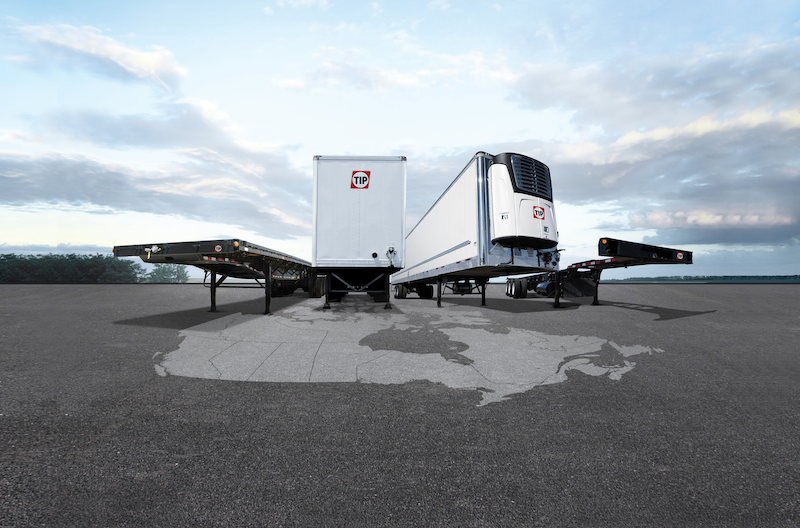n the wake of the tragedy that rocked the country, provincial governments across the Prairies are considering substantial changes to the required training for new drivers, and additional restrictions on who is capable of driving over-sized trucks.
On April 6, 2018, a tandem trailer belonging to an Alberta-based trucking carrier crashed into the team bus of the Humboldt Broncos. What ensued was a nightmare for not only the team and their friends and family, but for Canadians nationwide. The accident resulted in 16 individuals losing their lives and 13 others being injured.
Despite the accident occurring just outside of Armley, in east-central Saskatchewan, the truck that crashed into the bus was licensed in Alberta. Following the tragedy, reports emerged that the driver of that truck had only roughly a year of commercial truck driver experience and barely two weeks on the job with his employer, the carrier company.
Due to the Alberta connection, Alberta Transportation Minister Brian Mason has suggested that in order to reduce the chances of similar incidents occurring, the answer might be to introduce Mandatory Entry Level Training (MELT) for commercial truck carriers. That is a change that is also being considered by both Saskatchewan and Manitoba. In Saskatchewan, the province’s Crown insurance provider released a memo to driving instructors anticipating an introduction of MELT in the near future. In Manitoba as well, the government has indicated their desire to introduce standardized training certification for new drivers.
Currently in the Western Provinces, there are no minimum hours of training required to operate a commercial truck. The only training requirement in the prairie provinces is that the driver be capable of passing the mandated license exam. The proposed changes to mandate entry level training in the western provinces is similar to a change that has already been introduced in Ontario.
In Ontario, the changes came into effect on July 1, 2017 with the province’s revised Commercial Truck Driver Training Standard.1 That current standard requires that new drivers obtain at least 103.5 hours of combined training in order to obtain the province’s Class A license. At the same time, drivers who held a license prior to the July 2017 implementation of the standard were exempt from the new requirements. The hope was, of course, that this change would result in safer highways.
There is no indication to date as to what form any changes would take in Alberta, Saskatchewan and Manitoba. Whether they would model the changes that have been introduced by the Ontario amended standards or whether it would take of the form of regulations passed pursuant to the various pieces of provincial traffic legislation (i.e., the Alberta Traffic Safety Act2, Saskatchewan’s The Traffic Safety Act3, and the Manitoba Highway Traffic Act4) is unclear.
If the Prairie Provinces do follow through and introduce MELT to the trucking industry, then its impact will likely be felt most strongly by smaller carriers. Those carriers are already faced with driver shortages, and additional delays in the training of new drivers could further compound the problem. The change would almost certainly result in an increase in costs for the industry as a whole.
Meanwhile, the Alberta carrier that is at the center of April’s deadly crash has had its license suspended, and an RCMP investigation into the accident is ongoing. The carrier also faces the potential prospect of civil litigation relating to the deaths and injuries that resulted. Any such litigation would likely involve the long-established principle in the common law that an employer, like the Alberta carrier, is liable for the negligent acts committed by its employees in the course of their employment.
It is unclear when the fallout from this incident will eventually be resolved. What is clear is that this tragedy will likely have long-lasting impacts on not only the law affecting the trucking industry, but on the Canadian psyche as a whole.
Darin Hannaford gratefully acknowledges the assistance of Ian Wilson, Student-at-Law, at Miller Thomson LLP, Edmonton in the preparation of this article.
References
1 https://www.ontario.ca/page/new-mandatory-training-class-drivers-licence-applicants.
2 Traffic Safety Act, R.S.A. 2000, c. T-6.
3 The Traffic Safety Act, S.S. 2004, c. T-18.1.
4 The Highway Traffic Act, C.C.S.M. c. H60.


 1-866-985-9791
1-866-985-9791

 I Squared portfolio companies Transportation Equipment Network (“TEN”) and TIP Canada combine operations; now the second largest full-service trailer lessor in North America
I Squared portfolio companies Transportation Equipment Network (“TEN”) and TIP Canada combine operations; now the second largest full-service trailer lessor in North America








